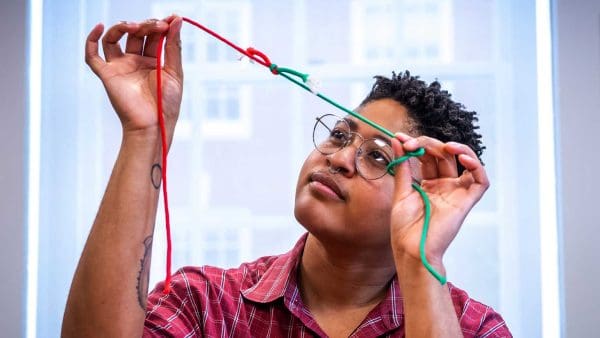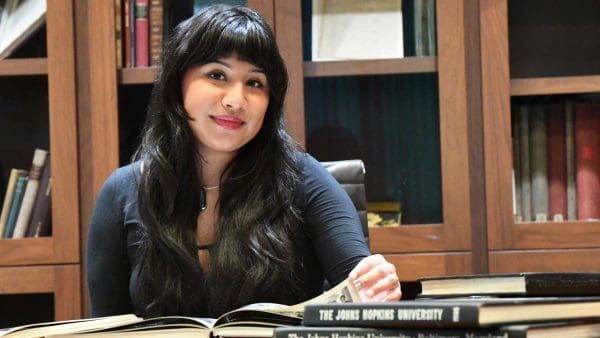Poetry, said Plato, is a bad influence.
Plato believed poetry taught false virtue and encouraged people to get away with unethical behavior, says Brendan “Grady” Stevens ’13. Poetry also perpetuated the teaching of false virtues, keeping people from striving to do what is objectively the right thing. Through his diatribe against poetry, Stevens says, Plato shifted the concept of justice in the Greek world.
The recipient of a Dean’s Undergraduate Research Award, Stevens is a double major in classics and philosophy with a minor in psychology. He says he has always been drawn to philosophy and the idea of justice. “I always thought and assumed that the point of life was to be the most just person you could be,” Stevens says. “My research is just another way of me trying to figure out what it is to be just.”
Stevens embarked on an extensive study of influential ancient Greek thinkers Homer, Hesiod, and Plato. He wanted to explore how Plato’s concept of justice differed from that of two of his predecessors, and to uncover a new way of understanding justice in Plato’s Republic. As part of his study, Stevens traveled to Oxford, England, and to Athens last summer to search for hard-to-find publications and to see where Greek tragedies were performed—many of which involve themes of justice.
“Plato steps forward into the ethical,” Stevens says. “It’s the first substantial discussion of justice in the Greek philosophical tradition,” he says. Plato makes a compelling case for “why [behaving justly is] better than being sly and cheating and getting away with whatever you are able.”
Stevens’ research suggests that it is Plato’s attack on poetry, specifically, that allows justice to be defined in a new way—a way where justice, in and of itself, is something more worthwhile than anything else, and that a life lived justly is, by definition, better.
Attracted to the classics for their “massive influence” on life today, Stevens also gravitates toward a very modern application of justice: the contemporary courtroom. He plans to earn a doctorate, perhaps extending his findings into a dissertation on the effects of Plato’s reconception of justice on everyday life; voting habits, for example. He also plans to attend law school and become a litigator. “I like the idea of standing in front of a jury and trying to persuade people with different opinions to my own view,” he says.





